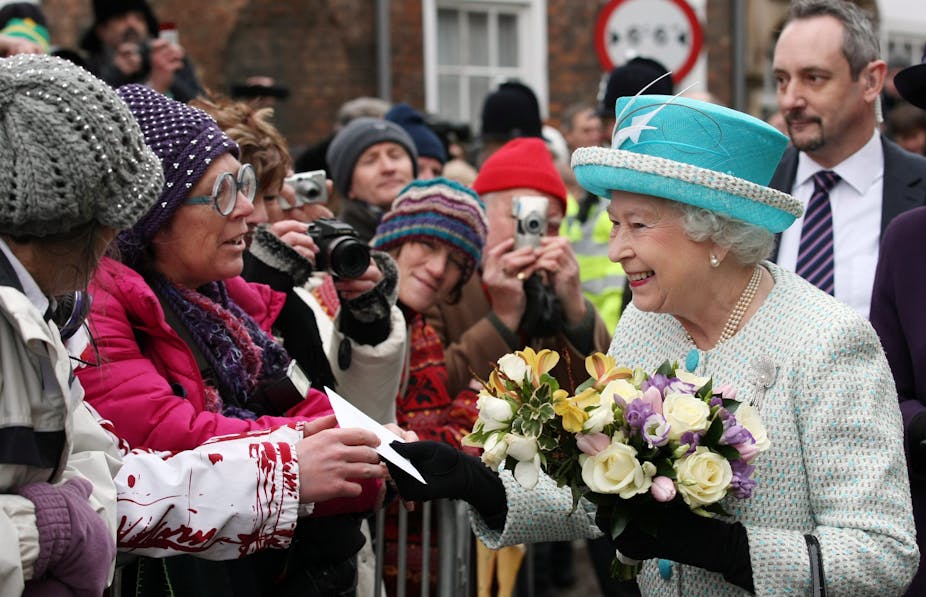To some, the Queen and her royal family are dear to the heart.
To others, there is nothing sillier than following the lives of individuals that parade themselves as royalty. And for many – if not most – of today’s commonwealths, there is a substantive divide within the citizenry over this issue.
One very recent example is the Canadian government’s announcement that CAD$7m(A$6.5m) will be donated to support the Queen’s Jubilee. Unfortunately, this came off the back of an announcement that Parliament will try to cut old age pension support. Many elderly people in Canada live off around CAD$600 (A$577) of public money per month – hardly a gracious sum given the amount of work, taxes, and other forms of support most gave to their country. In fact, for many, this almost dual announcement is nothing short of a bloody outrage.
The Jubilee also recalls the debates between many Australians when Elizabeth Alexandra Mary (the actual name of Her Majesty) visited last year.
Looting the Commonwealth coffers
Both Australia and Canada are multicultural countries with substantive portions of the citizenry that have no cultural affiliation with Elizabeth Mary or her quite probably wonderful family.
I think that we need to start being a bit more sensitive with our elite-level budgeting. There is significant scope for governments to canvass the public and find exactly which individuals want to contribute to Elizabeth II’s Jubilee – a celebration in honour of all the hard work she has done over the course of 60 years. Based on that proportion of the population and the suggested sum they came up with, the government can then send a ratified budget for the other houses to accept.

That only seems fair – to some. There are many individuals who want nothing to do with a royal family, which has been responsible for bloodshed, empire, conquest, and tyranny throughout the world. Others simply have no interest in royalty whatsoever. These sentiments are found in India, Sri Lanka, Tanzania, South Africa, Australia, Canada, the USA, New Zealand, Ireland, Scotland, Wales, Jamaica, and the list goes on.
These individuals would rather see the money the supporters of her Majesty want to spend to support her celebration go to the elderly, to public transportation, to youth programs, or other arguably more practical endeavours. Even aficionados of the royal family might argue that CDN$7m is simply too much to spend. Should the royal coffers not bear the burden of this celebration?
A democratic solution
I think we need to work together. Those who wish to support the Jubilee should be the ones to debate how much of their public money should be sent, with representatives hearing counter-arguments and coming to a balanced decision.
We have to give and take in a democratic society. For many, the Queen forms a very significant part of their lives just as the Pope does for many Catholics or the pilgrimage to Mecca does for Muslims. But funding these cultural celebrations should not be made by government without the express consent and debate of the citizenry, especially those for and against the measure.
Perhaps the sweetest deal would be to try to appease both “for” and “against”. In Canada, the government could have acted better by spending funds to support the Jubilee but also securing funds to support the elderly and not further impoverish them. By giving both sides concessions, a government can support the whole of the citizenry and not simply play these seemingly idiotic majority government politics where the losing half bitterly begrudges the decisions of the winning half. How divisive and undemocratic.
Don’t forget the First People
This discussion has only scratched the surface of a far more complicated matter. Let us not forget the original inhabitants of most commonwealth countries – the Aboriginal people of Australia, the Maori, Native Americans, or the Caribbean Indigenes among a much longer list.
How do these individuals feel when the offspring of their conquerors and the guests from overseas that the rulers allowed to settle wish to celebrate a symbol that to many is bitter and painful?
I for one am partly indigenous, a métis as we are called in Canada, hailing from the Huron-Wendat people who have been in diaspora for nearly 400 years.
My desire is for indigenous people to strengthen themselves so as to proceed with the dialogue of their cultures with those of others just as immigrants to Australia or Canada have been doing. Together, the non-indigenous, indigenous and recent immigrants as well as other minorities have the capacity to make our international community work better, but only if governments crawl out of the stone age and begin delivering Politics 2.0.
We should support those who want to celebrate the Queen but not at the expense of the elderly, the indigenous, or any other disadvantaged group.

